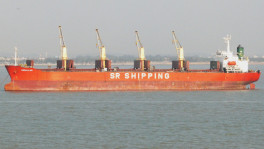Don’t expect China to rebound quickly from coronavirus
Cascading spillovers in trade, supply and demand, and the movement of goods are difficult to reverse rapidly

Even as global authorities struggle to contain the spread of the coronavirus, the market is modeling the economic impact in China as a V: a sharp deceleration of growth this quarter followed by a strong rebound in the second. As such, many have argued that the best analytical approach is to "look through" the crisis, treating its economic effects as containable, temporary and reversible.
I sure hope this is right. The global economy — and, in particular, those countries with more fragile growth dynamics — can ill afford a big shock that has adverse geopolitical and institutional spillovers. Unfortunately, it is still early to declare with confidence the much-hoped-for V-shaped evolution. Indeed, given what I have called the cascading sudden-stop dynamics of the coronavirus for China and beyond, the risk of either a U- or L-shaped pattern for 2020 is still too high to dismiss.
What makes China's economic outlook particularly uncertain is the multifaceted nature of this latest shock. For example, it involves critical interruptions to both demand and supply; it impacts both manufacturing and services; and it disrupts both internal and external trade.
On the ground, this has been playing out through cascading sudden-stop economic dynamics. They were centered first on the province where the virus outbreak was first identified. The result was a halt to economic activity, both production and consumption, as well as to the movement of people and goods. The next stage involved the creeping paralysis of economic activity elsewhere in China, disrupting internal commerce, trade and travel. Now there is growing evidence of the cascading impact in the rest of the world. Here are just a few examples: Apple, Ikea and many others are shutting stores in China; Burberry reported a drop in sales of three-quarters or more there; Fiat-Chrysler warned that it may be forced to stop production at one of its European factories because of supply chain issues; many countries are halting flights to China and placing restrictions on people arriving from there; passengers are being quarantined on ships, including in Japan. The list goes on.
This type of cascading sudden-stop dynamics was last experienced on a large scale in 2008 during the global financial crisis. With counterparty risk evaporating and financially sound actors stepping back from basic interactions, financial activity came to a brutal halt. Indeed, without the sweeping intervention of central banks that inserted them as intermediaries to restart financial activities and reconnect broken markets, the global economy was heading quickly into a multiyear depression.
The resulting V-shaped dynamics seem to have now influenced many people when it comes to assessing the shock associated with the coronavirus. The most common argument is that the rate of infection in China has peaked and will come down quickly; cases outside China are limited; vaccines are being developed rapidly; and central banks, starting with the People's Bank of China, are both able and willing to inject enormous liquidity to support balance sheets and accelerate the economic recovery.
As much as I hope that this will indeed play out quickly, I am reminded how economists are taught early in their careers that goods markets respond more slowly than financial ones. This is the case with the coronavirus. The initial sudden-stop shock has played out more slowly and gradually than what the global economy experienced during the financial crisis. And, I fear, it can take longer to restart economic activity once it is deeply disrupted.
I worry that many analysts do not fully appreciate the notable differences between financial and economic sudden stops. Rather than confidently declare a V, economic modelers need more time and evidence to assess the impact on the Chinese economy and the related spillovers – a consideration that is made even more important by two observations. First, the Chinese economy was already in an unusually fragile situation because of the impact of trade tensions with the U.S. Second, it has been navigating a tricky economic development transition that has snared many countries before China in the "middle income trap."
All this suggests it is too early to treat the economic effects of the coronavirus on China and the global economy as easily containable, temporary and quickly reversible. Instead, analysts and modelers should respect the degree of uncertainty in play, including the inconvenient realization that the possibility of a U or, worse, an L for 2020 is still too high for comfort.
Disclaimer: This article first appeared on Bloomberg.com, and is published by special syndication arrangement.


 Keep updated, follow The Business Standard's Google news channel
Keep updated, follow The Business Standard's Google news channel
















